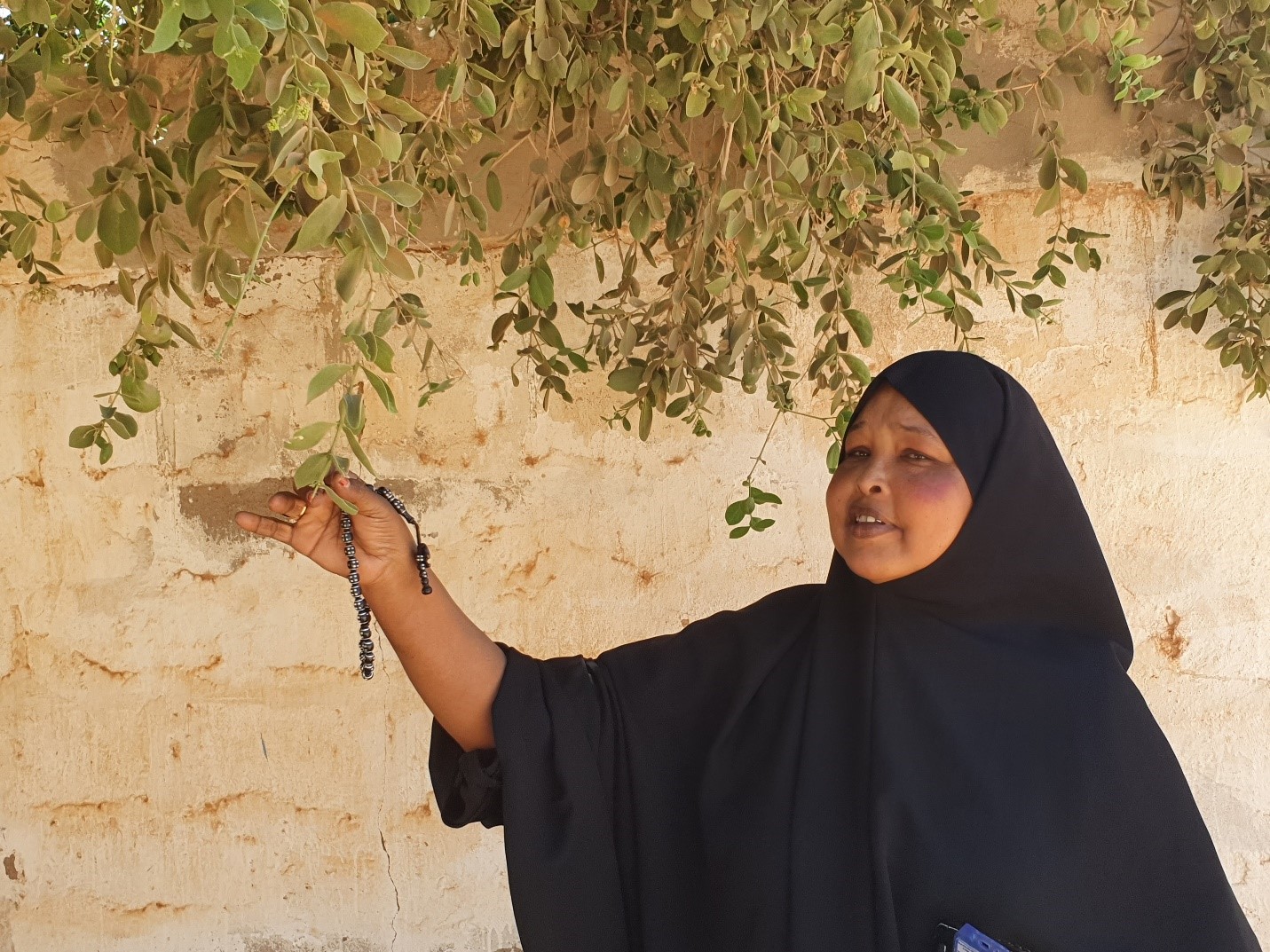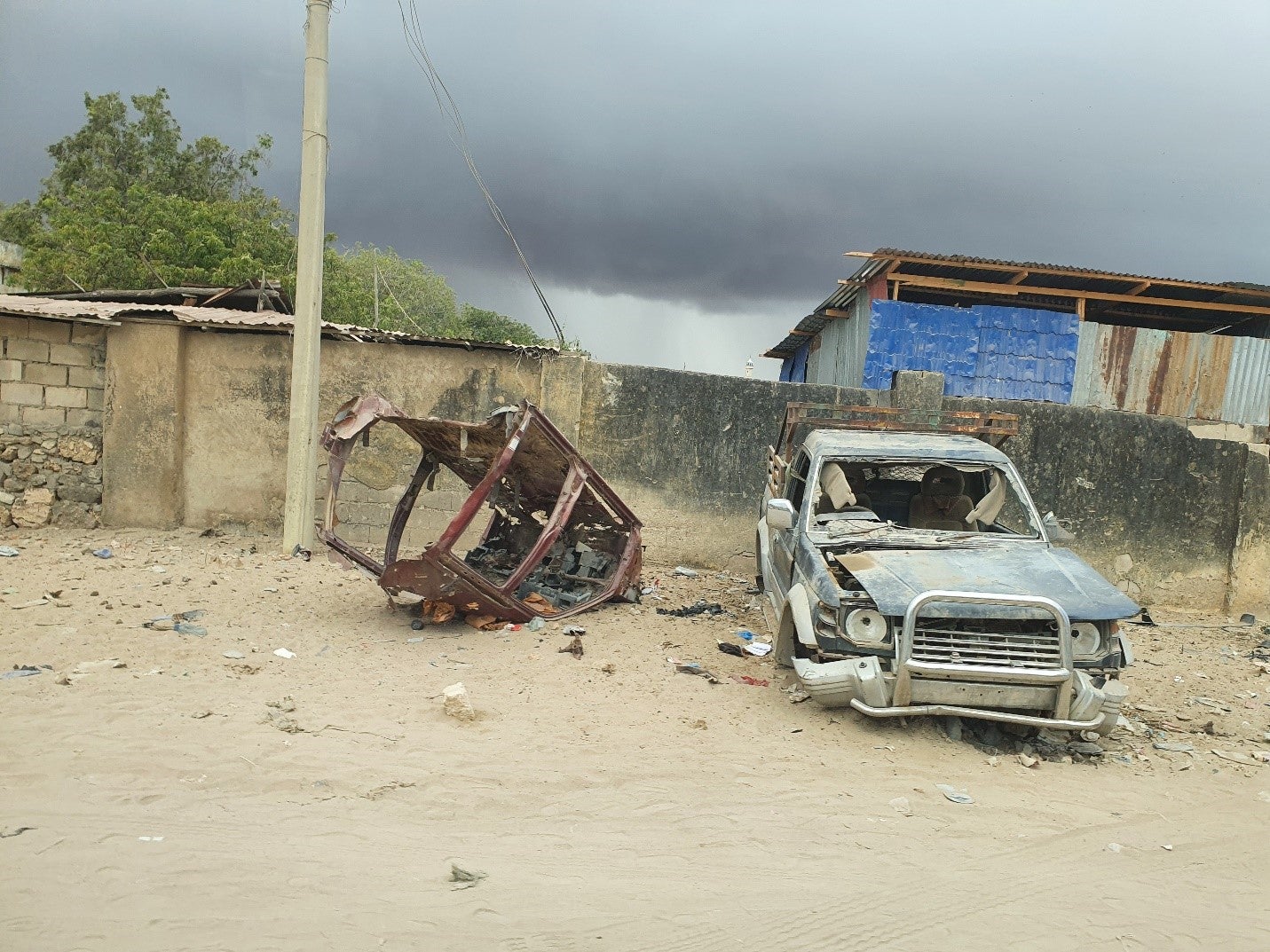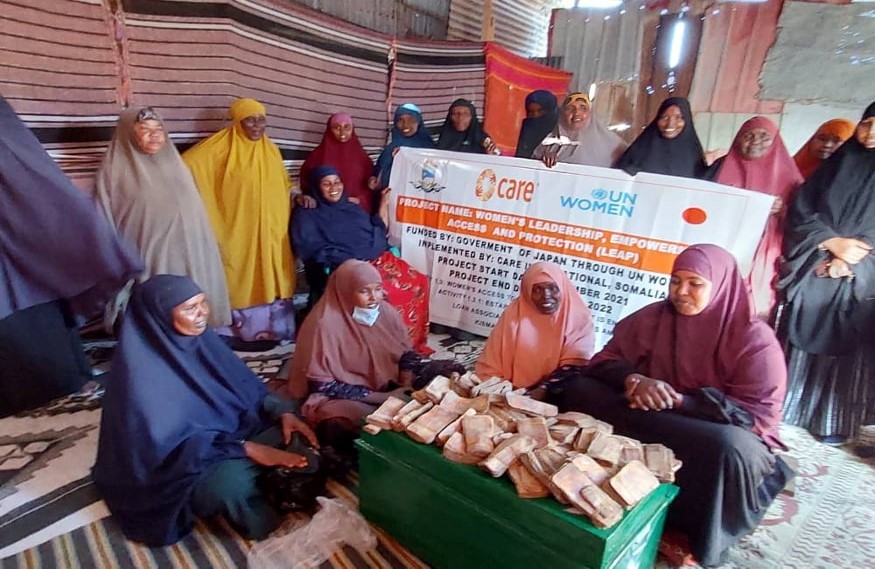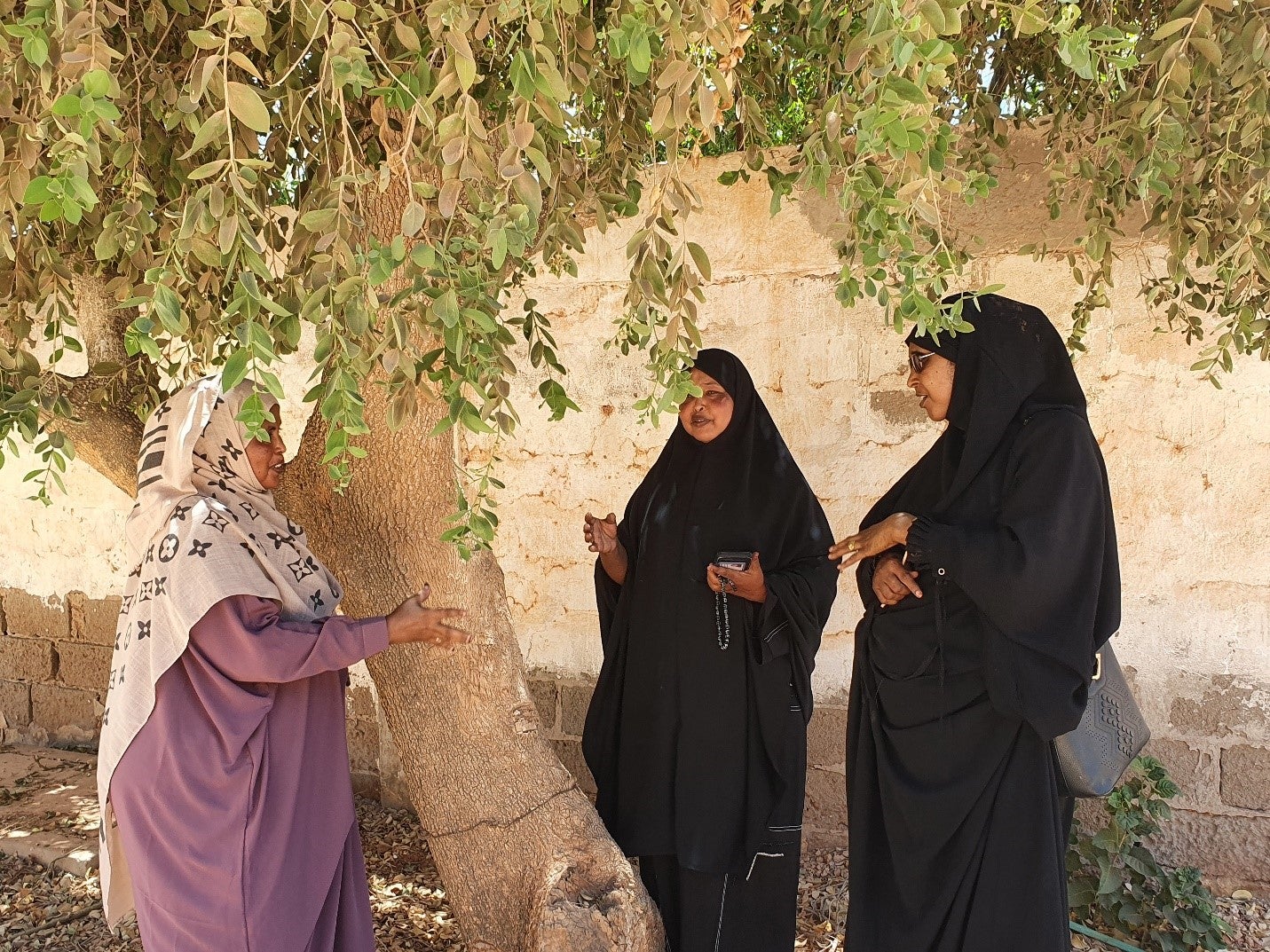Village Saving and Loan Associations can be a solution to lost livelihoods
Date:
Prolonged droughts and overall insecurity place a huge burden on women in Kismayo in the south of Somalia. Women, especially heads of households, have to find ways to survive and support their families. With support from the Government of Japan, UN Women is creating opportunities for climate security, climate smart agriculture, livelihoods and business skills for women in Somalia. One of the solutions is VSLA’s – Village Saving and Loan Associations, where Fatuma Mohamed Abdi is a member.
Prolonged conflicts made many women vulnerable and created female-headed households. While some women are widows, some were left by their husbands, or have to look after them. A protracted drought that destroys lives and livelihoods is an additional challenge. Women and girls are consistently more vulnerable to drought as it places a triple burden on them: to survive, to care for their families, and to evade sexual violence.

Anzal Ahmed, a mother of nine, relied heavily on agriculture and cattle and thought she was leading a relatively happy life. The drought then changed everything. Her hopes for rain and for sustaining her livelihood disappeared more and more every day. Her crops dried up and her livestock died and like many women she was struggling to support her family. Her story is a story of many women, especially those, who for various reasons became the sole breadwinner.
When UN Women started the “Women's Leadership, Empowerment, Access and Protection (LEAP) in Somalia” project with support from the Government of Japan, Anzal and other women had hope again. The project aims to empower women and girl refugees, internally displaced persons (IDPs) and women in host communities to mitigate impact of multiple crises on livelihoods, exposure to gender-based violence, and their decision-making capacities. The project is being implemented in Kismayo (Jubaland) and Baidoa (South West).
“In humanitarian situations, such as the one we are experiencing in Somalia at the moment, patriarchy, gender-based discrimination and inequalities exacerbate the impact of crises on women and girls. Women with disabiliies, refugees and women from IDP communities, women heading households, older women, widows and single mothers, and women belonging to other marginalized groups, are most affected. Therefore, our focus is on vulnerable women,” says Syed Sadiq, Head of UN Women Somalia.

With other women farmers, Anzal received important training on post-harvest handling processes and management of community-based storage facilities. She also learned a lot about starting a small business, as an alternative to farming and cattle breeding. Anzal joined other women for Village Saving and Loan Associations (VSLA). The VSLA concept is a method of collective financial pooling, saving and crediting.
“Each VSLA has 25 members. Each month, these members need to deposit certain amount of money and each month one woman get all the pooled funds to start a small business or to expand an existing one. Next month another member receives the funds collected, “said Ahmed Ali, Acting Kismayo Office Manager, CARE Somalia, adding that “women also have a Social Fund, which allows women to support each other in times of need. We trained women how to run VSLAs, how to save money, borrow and start businesses, members of each group wrote their own constitution and the elected key leaders such as the chairperson, treasurer, secretary and they will continue this arrangement even after completing on the project.”
Twenty Sustainable Village Saving and Loan Association groups were established, and 1,000 women were trained in Kismayo and Baidoa.

Fatuma Mohammad Abdi, local women’s group representative of Lower Jubaland, supports women like Anzal every day, since she became the sole breadwinner of the family. She understands difficulties that women face being the core of the family who needs to bring the food home.
When UN Women Somalia and its implementing partner Care International Somalia started training women on Village Saving and Loan Associations (VSLA), Fatuma quickly understood it is something that can help vulnerable women, especially single mothers, widows or those who have to take care of their families.
‘’The VSLA is an easy and yet effective concept. Not only we now know how to save money, borrow and start businesses, and how to run such self-help groups, but we also became very close friends with each other to support in times of need. Sisterhood, women’s solidarity and support to each other is so important for women in Somalia, who have many difficulties,’’ says Fatuma.
Fatuma says being a VSLA leader also built her self-esteem, determination and confidence that groomed her to become a VSLA chairperson.
“It gives me so much joy to see that we can survive and thrive, and we can be a good help for each other. I met a lot of women with different perspectives, from different clans, and learned how to be a good leader.”

With a loan of 2,000,000 Somali Shillings ($78), Anzal started a small kiosk business and no longer worries about the food she can bring home.
“Now I have an additional income source to provide for my children. I have paid my loan back and I am waiting to take the second round loan. I want to expand my business and I am confident I will be able to do so,” says Anzal.
Fatuma and Anzal intend to continue the VSLA and see a lot of interest from other women. They do not want to stop and hope more training will be available as they enjoyed independence, co-learning and leadership and want to continue improving skills and empowering other women affected by drought.